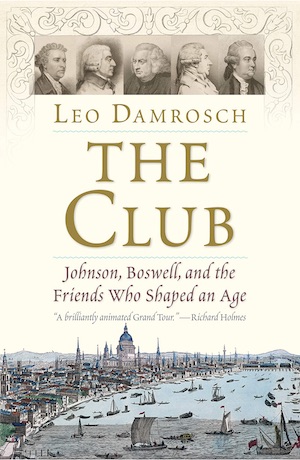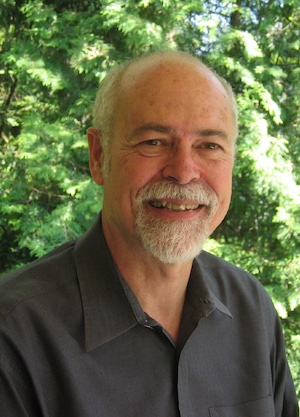By Benjamin Pontz
Just before he turned 70, Leo Damrosch (ΦBK, Yale University) retired from his post as a professor of literature at Harvard University to give himself more time to research and write. Shortly before retirement, his focus shifted from conventional academic writing for specialists to works—particularly biographies—aimed towards more general audiences. In the years since, Damrosch has written about Jean-Jacques Rousseau, William Blake, Jonathan Swift, Alexis de Tocqueville, and, in a biography soon to be published, Giacomo Casanova.
His 2019 book The Club: Johnson, Boswell and the Friends Who Shaped an Age, which was shortlisted for Phi Beta Kappa’s Christian Gauss Award, is a bit different. Its subjects—Samuel Johnson, James Boswell, Edmund Burke, and Adam Smith among them—are luminaries in their own right who have been the subject of sundry biographies. Damrosch weaves their stories together in the context of the club (known only as “the Club”) they formed in the 1760s, where they met weekly to eat, drink, and, as Damrosch explained, “to have intelligent conversation with no agenda.”

“They wanted somebody from each of many different fields—politics, a physician, a businessman—the notion was that even if only two of us show up on a given evening, we’ll still have a good time together, to enjoy each other’s thinking and not to learn from each other in a very specific way, but to feed off of each other’s interests and intelligence,” Damrosch said.
At the time, hardly any of the leading creative and intellectual work in Europe was conducted by academics, and many great thinkers were predominantly self-educated. Some were relatively poor. Members of the Club were not all famous in their time—Edmund Burke’s membership predated his time in Parliament, for example. Part of the provenance of the Club was to provide companionship, particularly to Samuel Johnson who faced depression and destitution after the death of his wife. And although they were not members of the Club, women played an indispensable role in shaping the intellectual ambience of late-18th century London, to the point that Damrosch describes them as a “Shadow Club.”
This is to say that discussing life’s big questions was a social activity not confined to an aristocratic elite. And cultivating and sparking this sort of opportunity for people beyond the academy to lead rich, intellectually fulfilled lives animates Damrosch today. Working as a professor—with its administrative duties and dreaded department meetings—was his career, but writing for audiences that want to think about the world is his vocation, he said.
“It’s a vocation, which means it is a calling, literally—it’s something you do because you want to do it,” he said. “I’ve been lucky because this path I blundered into is one that suits me.”
Beyond writing, Damrosch has continued to teach summer courses at Harvard, and he also records lectures for The Teaching Company. He bemoaned the continued sidelining of the humanities in higher education and said, in a broad sense, the humanities need a foothold outside the academy if they are to survive as more than just something decorative. And while he would not call himself a public intellectual, in writing for broader audiences, Damrosch said he hopes to move beyond the “arcane realm [of] academic fiefdoms” and speak to people as people.
“When I was young, a lot of historians prided themselves on using only archival material that’s run through a computer and is actually giving you the past, and storytelling was thought to be a very old-fashioned, inferior way of writing history,” he said. “A lot of great historians now are writing spell-binding stories that rightly reach a much larger public, but that also are first-rate history. In a way, that’s what I’m trying to do with biography. I think there is this larger audience that’s ready for it.”
Leo Damrosch became a member of Phi Beta Kappa at Yale University in 1962 before winning a Marshall Scholarship to study at Cambridge and ultimately earning his Ph.D. at Princeton University.
ΦBK member Benjamin Pontz is a 2020 graduate of Gettysburg College who double majored in political science and public policy with a minor in music. He is currently a Fulbright Postgraduate Scholar at the University of Manchester. Gettysburg College is home to the Iota of Pennsylvania chapter of Phi Beta Kappa.




